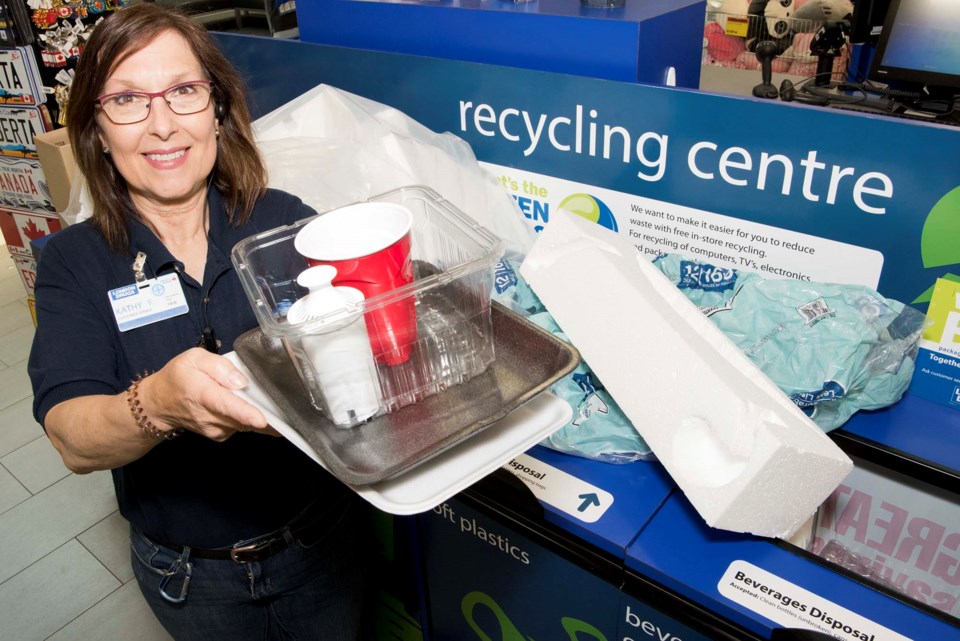A new law now before Alberta legislators could save taxpayers money by forcing manufacturers to pay to recycle the products they make.
Alberta Environment and Parks Minister Jason Nixon tabled Bill 83 in the Legislature on Nov. 15. The bill, if passed, would enable the province to establish an extended producer responsibility (EPR) framework next year through regulation.
Alberta currently sends about 1,034 kilograms of waste per person to the dump each year, Alberta Environment reports — more than any other jurisdiction in Canada and far above the national average of 710 kilograms. Municipalities, meanwhile, struggle to fund recycling programs clogged by an avalanche of plastic and packaging waste.
“For far too long municipalities and taxpayers have been shouldering the burden of collecting, sorting, processing, and recycling waste,” Nixon said at a press conference.
Nixon said this law would let the province create an EPR program for single-use plastics, packaging, paper products, and household hazardous waste, one that would require manufacturers of said products to collect, sort, process, and recycle them. He has no plans to include beverage containers under EPR, as the province’s deposit-based system is working well.
Nixon said EPR would add some $1.4 billion to the province’s recycling industry, create some 13,000 direct and indirect jobs, and build on the province’s plans to create a circular economy for plastics.
The draft law allows the province to exempt certain groups or materials from EPR regulation and to collect information to determine eligibility for said exemptions. A discussion paper on EPR published by the province earlier this year suggested exemptions would apply to charities and small businesses with less than $1 million in revenue a year.
Nixon said he hopes to have EPR regulations in place by next spring.
In an interview, Christina Seidel of the Recycling Council of Alberta said EPR should lead to more consistent recycling services in Alberta and more waste kept out of the landfill, all at no direct cost to the consumer.
“If anything, it’s going to save them money.”
How EPR works
Alberta is the only province in Canada without an EPR framework, which means producers are not responsible for the waste their products create. That means manufacturers have little incentive to make their products recyclable, leaving taxpayers with a waste stream packed with Styrofoam, disposable straws, and other waste that costs a bundle to manage.
EPR put the onus back on manufacturers, Seidel said. By setting mandatory waste-diversion targets for certain products (e.g. packaging), EPR forces companies to design products that can be easily recycled, with profit motives encouraging them to set up cost-effective recycling systems for them.
Seidel said an EPR framework would see industry pay for recycling instead of taxpayers, which should lower utility bills. In most jurisdictions, industry hires cities or companies to collect and sort material for them, and typically sets province-wide standards for recycling to reduce costs and confusion.
Seidel said other jurisdictions have found that EPR did not have noticeable effects on product prices, as it typically cost less than a cent to recycle any one item.
Ed Gugenheimer of the Alberta Recycling Management Authority said EPR should produce many jobs in Alberta, as companies would have to hire people to collect, sort, and sell materials such as paper packaging that currently head straight to the dump.
Seidel said it is unclear how long it would take for EPR to roll out in Alberta once regulations are established. Still, she said the tabling of this law is an exciting development.
“This is something we have been asking [to happen] for literally decades.”
Bill 83 now heads toward second reading. Visit bit.ly/30qm1S1 for details.



